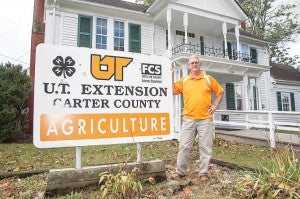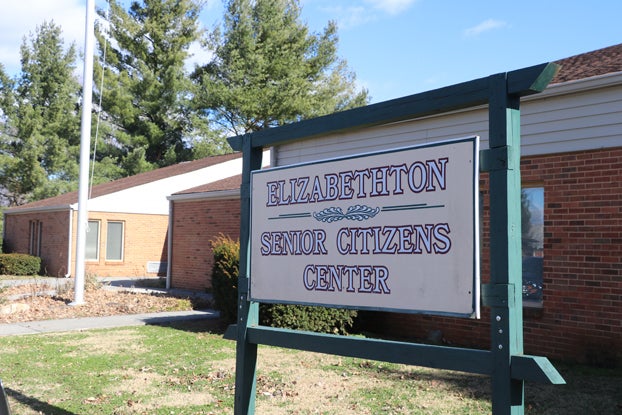Carter agriculture extension director retires
Published 10:00 am Wednesday, October 29, 2014
Over 43 years ago, a love of agriculture and economics inspired Keith Hart to begin his career as a University of Tennessee agriculture extension agent.
On Friday, Hart will move on to the next phase in his life when he retires from his position as the director of the Carter County extension office.
Hart started working as an extension agent in July 1971 in the Johnson County office in Mountain City. In 1976, he was transferred to the Carter County extension office.
While in Johnson County, Hart worked primarily with the youth in the 4-H program as well as an extension agent.
“I was straight out of school, so it was a huge transition,” Hart said.
Hart said he was raised in a military family, but his first love was agriculture. He said when possible he would spend time on his grandparents’ farm in Carter County to spend as much time with agriculture as he could.
He attended school at East Tennessee State University for two years in the economic program, which Hart said he “loved.” He then learned the University of Tennessee offered an agriculture economics/rural sociology major and transferred there.
He said when he graduated the extension service offered him a job in Johnson County. Hart didn’t expect the job to turn into a lifelong career.
“I thought I would be there for about a year, and then I would move on to something else,” he said. “I didn’t do that. I found I loved working with the people and helping them with the problems they had.”
Hart said he helped people with everything from plant recommendations, to pesticides and chemical uses and financial concerns for local farmers and growers. His favorite part of the being an extension agent has been working with the Fraser Fir tree lighting each Christmas.
Through his years on the job, Hart has witnessed changes in the agricultural landscape of the county. Years ago, the leading county productions were tobacco and beef cattle. Now, the main crops lean more toward Christmas trees and greenhouse plants.
With these changes came an education process to help land owners learn how to make the most of the new crops.
“We work with people to let them know what will work, what won’t work,” Hart said. “If you are going to be an extension agent, you have to be a people person because you will be dealing with new people everyday and you will be exposed to new issues everyday.”
He said explaining the duties of an extension agent was complicated because the duties ranged in so many different areas.
“It is a complex role to be in,” Hart said. “The longer I have worked, the more I have seen that most problems are not a simple yes or no answer. There are a lot of gray areas that need to be considered. A simple question could see dozens of situations.”
Hart said the biggest “thrill” on the job was to pass along information to a client and to see that information be successful.
Another change for Hart was the location of the extension office itself. When Hart first moved to the Carter County office, the extension office was located in the basement of the old Post Office, which is now the Elizabethton/Carter County Public Library.
He said at the time, the county was looking to purchase land to build a new jail and the old Folsom House could have ended up being torn down.
“There were a number of people who did not want to see that happen,” Hart said.
He said the Folsom family agreed to change the purchase agreement and the house was left standing for the Extension Office to relocate to in 1978.
Hart said it was an honor and privilege for him to be able to work in Carter County for more than 40 years.
“Even though I was raised in a military family, Carter County is my home,” Hart said. “If we trace back the family, they all come back to here. To be involved in the heritage and culture has been great.”
Growing up on military bases led Hart to a variety of cultures and experiences. Probably one of the most unique was be able to climb Mt. Fuji in 1958 when he was in the third grade.
“That was dangerous,” Hart said. “It was the last day the trail was open. There were 10 stations up the mountain and the winds were gusting up to 50 miles per hour and it was raining and sleeting. We spent the night at station eight. When we got up the next morning, it was so foggy we could not see three feet in front of our faces.”
Hart said in 1958 the trails on the mountain were very basic and the safety equipment consists of a wire to hold on to so hikers would not lose their way.
Hart officially leaves his position on Oct. 31. After his retirement, he said he plans to work on his farm near Milligan College and work on tracing his family’s history even further.





